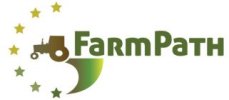Rennes Metropole
The whole Brittany region has developed on the basis of standardised industrial food production and processing. The associated farming systems at the regional level are based on both cereal production and cattle breeding, mainly milking cows, off-land pigs and poultry. The set of initiatives studied in the urban and peri-urban 67 communes in and around Rennes are based on the valorisation of local food products with direct or almost direct (not more than 1 intermediary) selling to consumers. One of the main challenges and constrains for the transition toward those new models is the fact that the regime model initiated a very large number of regional jobs for food production, food processing and food marketing. One of the fears of the decision makers would be the destruction of industrial jobs if AMC were to be generalized. Prospective calculation show however that the number of regional jobs would be preserved. The nature and specificities of those jobs would have to evaluate in a radical way (skills, organization, responsibilities, territorial repartition, etc).
The fast and important development of these initiatives has been made possible over the past 20 years by two factors: a social evolution of the demand of urban consumers (Rennes Metropole), and a positive political context initiated by local authorities (preserving farmland around the city within the local urban design and policies, encouraging alternative initiative based on local food for the settlement of young farmers and new entrants…). The city of Rennes was one of the initiators of a network of large French cities (“Terres en Ville”) supporting local agriculture, of which AMC. On the farmers side, the main drivers for transition are networking and a local education center providing a common technical and philosophical background to the members of those networks : many of them have followed this education program.
One pre-survey step was driven with key-informers providing initial information about the territory : this group was constituted by local policy makers, local representatives of farming institutions (extension services, land management structures …), and by the main representatives of farmers organizations representing both the dominant regime and the niche Our interview with 30 farmers (of which 12 young farmers and new entrants) then aimed to describe the long term evolutions over 20 years in the Pays of Rennes, in order to complete the analysis of the conditions and nature of the transition.




